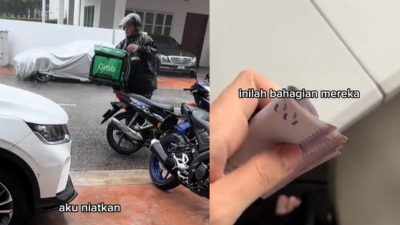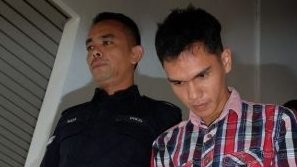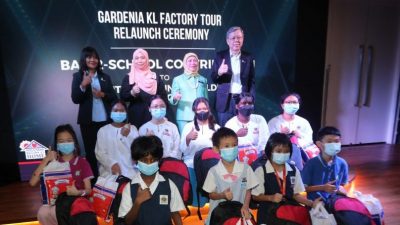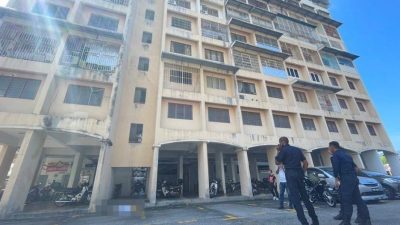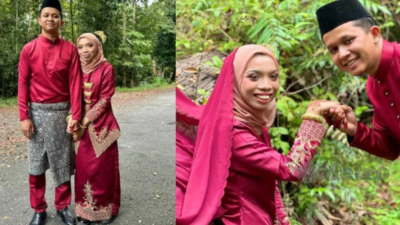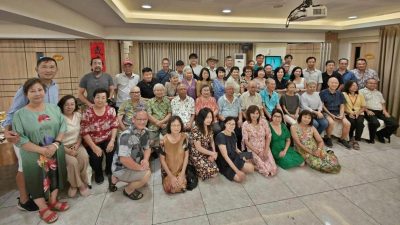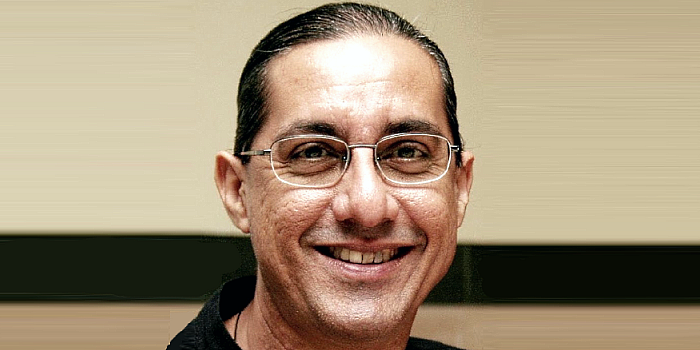
Malaysia has a long-standing practice of making policy decisions and planning programs for us persons with disabilities and care partners — without engaging us.
This practice has yielded poor results that failed to address real OKU needs.
The new unity government has a fresh chance to undo this harmful practice by proactively and meaningfully engaging persons with disabilities and care partners in policy decision-making and program planning.
“Nothing About Us Without Us” emerged globally in the 1990s, championed by persons with disabilities and allies to underscore the critical importance of our meaningful participation in all decision-making that affects our well-being.
Programs and services developed by non-disabled persons for persons with disabilities are based on the view that disability is a problem that must be corrected to make “the disabled” as close to “normal” as possible.
In this view, a disabled person is perceived as being lacking in the desirable characteristics of a “normal person” and is thus of lesser value and lesser humanity than so-called “normal” persons.
This devaluing of anyone with a disability is ableism.
Ableist practices, beliefs and attitudes undermine and limit fulfillment of the full potential of persons with cognitive, sensory, physical or psychosocial disabilities.
It is ableist attitudes and beliefs, manifested as behavior choices of non-acceptance and of hostility, that have a disabling effect. More information on ableism can be found here.
Importantly, the exclusion of persons with disabilities from meaningful participation in policy and program decision-making exposes the internalized belief system of non-disabled persons, that we persons with disabilities are incapable of having our own aspirations and opinions.
We are forced to accept “Big Brother” deciding for us.
Such institutionalized negative attitudes deny the valuable lived-experiences of us persons with disabilities and care partners.
None of us would like our lives “controlled” by the decisions of others, especially without our voices being heard and given due consideration.
Token consultation for the sake of appearance will not suffice.
It is a wasteful use of resources and a loss not to engage us meaningfully in the planning, implementation, monitoring, evaluation and corrective action concerning any policies and programs that impact on our concerns and daily lives.
Some examples of negative practices:
The medical profession, specialists in particular, are notorious in thinking that they know what is best for their “patients.” Take, for example, the upcoming Ministry of Health (MoH) Action Plan for Dementia 2023-2030.
Of the 73 persons invited to a planning meeting in December to harmonize an advanced draft, only one by designation is a care partner of a person with dementia.
To be fair, 23 people from various ageing or dementia associations are invited (but quite a number of these are doctors). Not a single person living with dementia is on the list of invitees.
How can an effective and meaningful national plan be devised for meeting the real needs of persons with dementia and their care partners, if they are not represented adequately and time is not scheduled for listening to their valuable lived experiences?
The Ministry of Women, Family and Community Development (KPWKM) that plans social services via the Welfare Department has a similar outlook.
Policy and program planning for persons with disabilities tends not to involve persons with disabilities and care partners in any serious manner.
Opinions may be obtained from some persons with disabilities, but are often neither comprehensive nor extensive: they tend not to involve all disability groups across all regions in the country.
We persons with disabilities and care partners do not have a seat at the table and are not in leadership roles in policy and program decision-making that directly impacts our lives.
In just three weeks, the KPWKM Pelan Tindakan OKU 2016-2022 will expire. And, yet, most persons with disabilities still have no idea as to what will replace it.
There is hearsay that some new strategic document for OKU well-being may start in 2023. Who was consulted on that new document is a mystery?
The Ministry of Education has a document entitled “The Malaysia Education Blueprint 2015-2025 (Higher Education).”
This 40-page document is the product of engaging about 10,500 people over two years, with inputs from Malaysian and international education experts, and leaders of Malaysian higher learning institutions.
The document is built on the five aspirations of access, quality, equity, unity and efficiency. Surprisingly, there is not a single word about “Inclusion” or “Disability.” It is as though 15% of the Malaysian population, those with disabilities, are non-existent.
It is obvious that no persons with disabilities were consulted and no thought was given to addressing our right to education.
With progress in realizing the rights of persons with disabilities, our nation has fallen very far back in comparison with our neighbors.
This is the result of entrenched complacency with adherence to paternalistic and charity-based models.
Inclusion of persons with disabilities in the fabric of our society will foster inclusion in bridging disparities on all other dimensions of Malaysian society – including gender, ageing, urban-rural, income and ethnicity.
We call for a change in the outlook and practice of government ministries and agencies, professional bodies, civil society organisations and disability organisations.
To keep pace with progress on other fronts, we must move from services led by non-disabled people, to disability-inclusive services led by or co-created with persons with diverse disabilities.
Children and adults with disabilities and care partners have insights based on lived experiences that can guide everyone to design and implement policies and programs with improved outcomes.
Many more Malaysians need to embrace the principle of “Nothing about Us, without Us,” and have the courage to acknowledge that partnership with us persons with disabilities and care partners is a strength, not a weakness, nor a threat to professionalism.
It is time to emulate good practices elsewhere to have disabled persons in decision-making roles as board members, policy-makers and managers.
We need to accept and support disabled persons with varied strengths, support needs and communication preferences in decision-making processes, not just those who speak well and/or have low support needs. This will be a challenge to everyone who is today non-disabled.
The media has a vital role in preventing and calling out ableist attitudes and behavior, in breaking negative stereotyping, and in sharing respectful, realistic and meaningful images and stories about persons with disabilities.
We call on Malaysian media practitioners to join in advocating for a disability-inclusive Malaysia where OKU rights matter.
Guidance for the media can be found here: Disability Representation in the Media.
Inclusion in society is built on acceptance. It is nurtured by the principle of equal and full participation, in which all voices are heard and respected.
Our active involvement in the planning of strategies and policies that affect our lives as persons with disabilities and care partners will contribute to the development of a truly inclusive society, in which all voices are heard in shaping a stronger, more inclusive nation for all.
Signatories:
- Dato’ Dr. Amar-Singh HSS, person with dyslexia, child-disability activist, Adviser, National Early Childhood Intervention Council (NECIC)
- Sharifah Tahir, care partner, dementia advocate, and Founder of UniquelyMeInitiatives
- Yuenwah San, disability-ageing-gender activist, care partner, and Honorary Senior Adviser (Disability Inclusion), Social Development Division, United Nations Economic and Social Commission for Asia and the Pacific (ESCAP)
- Dr. Daniel Leong Han Ming, autistic self-activist, autistic peer group facilitator
- Ng Lai-Thin, care partner, and Project Lead, National Early Childhood Intervention Council
- Dr. Anthony Chong, Deaf person, Deaf activist/researcher, founder of Malaysian Sign Language and Deaf Studies (MyBIM) & Malaysian Deaf Advocate and Well-Being Organisation (DAWN)
- Mary Chen, care partner, Chairperson, Challenges Foundation
- Kaveinthran, Independent Disabled human Rights Activist
- Meera Samanther, disability-gender activist, parent advocate, and Committee Member, Association of Women Lawyers (AWL).
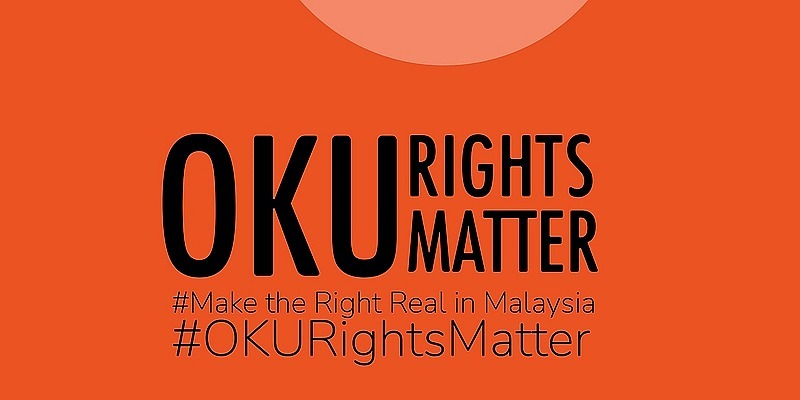
ADVERTISEMENT
ADVERTISEMENT






